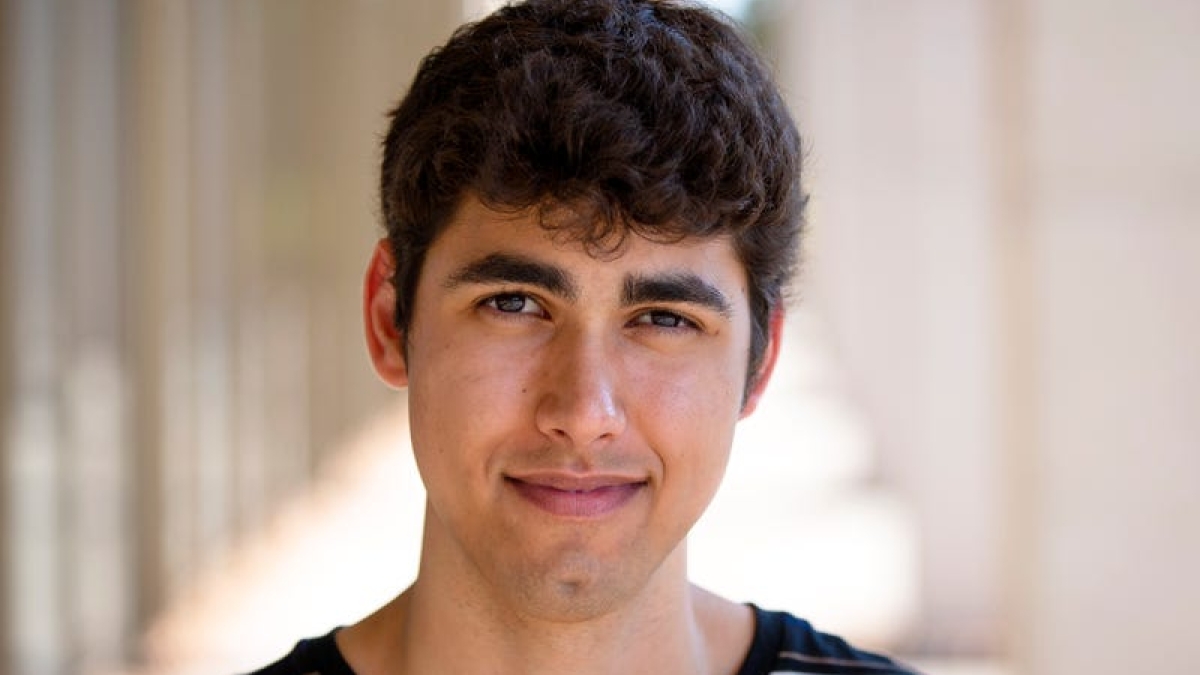First-generation student uses prestigious scholarship awards to further education, 'tilt the arrow of justice forward'

Sami Al-Asady
First-generation college student Sami Al-Asady always envisioned a future with a higher education in political science.
Arizona State University's Office of National Scholarships and Advisement proved to be an indispensable resource for him in that pursuit, allowing him to make networking a habit to absorb wisdom from professionals who were once in his shoes.
“What I lack for in resources, I make up for in determination,” Al-Asady said.
Spurred on by his desire for education, he gained admittance into selective programs.
Al-Asady’s motivation helped him earn financial aid from the School of Politics and Global Studies Director’s Scholarship and the Ross R. Rice Award, both of which allowed him to leverage the resources of a world-class research university by living on campus.
The scholarships afforded him the chance to engage with professors, attend evening lectures and have the space for thought and reflection.
“I am grateful to (the school) and the Rice family for their meaningful investment in my academics,” Al-Asady said.
The School of Politics and Global Studies laid a foundation for him to explore his academic interests as a student in Barrett, The Honors College studying political science and civic economic thought and leadership. His studies have led him to analyze issues from a multifaceted perspective with the understanding of social sciences and liberal education.
“These converging academic experiences enable me to develop as a thinker, student and future leader,” Al-Asady said.
Beyond his academic interests, he aims to gain hands-on experience in the professional world that help sharpen his skill set for post-graduation.
As a board member of Secular AZ, Al-Asady advocates for the constitutional separation of church and state through public policy. His work mainly adheres to influencing public opinion in the media on topics including LGBTQ rights, gun reform and reproductive freedom.
“As a first-generation American with First Amendment rights enshrined in the Constitution, I feel a moral responsibility to use my freedom of speech to tilt the arrow of justice forward,” Al-Asady said.
“In this vein, writing holds a nearly sacred value, as a funnel through which my ideas can be communicated to the community at large.”
As Al-Asady looks forward to the future, he hopes to be recognized not just for his accomplishments but also for his character. At 19 years old, he is proud of where his purpose has led him.
“My successes are also the successes of my parents, teachers and mentors. Each person I have encountered has left, for better or for worse, an effect on me; it is the accumulation of these effects that have shaped the person I am today,” he said.
Al-Asady acknowledges that mentorship and networking are vital to any industry, especially those in political science and international relations. He notes that hard work and perseverance will get you to your desired future.
“University is an exciting time to explore your interests without having to commit to a single path. You are shaping the person you want to become, so please never lose sight of that when adversities manifest. We are stronger than we often realize,” Al-Asady said.
More Law, journalism and politics
Spring break trip to Hawaiʻi provides insight into Indigenous law
A group of Arizona State University law students spent a week in Hawaiʻi for spring break. And while they did take in some of the…

LA journalists and officials gather to connect and salute fire coverage
Recognition of Los Angeles-area media coverage of the region’s January wildfires was the primary message as hundreds gathered at…

A new twist on fantasy sports brought on by ASU ties
A new fantasy sports gaming app is taking traditional fantasy sports and mixing them with a strategic, territory-based twist.…

